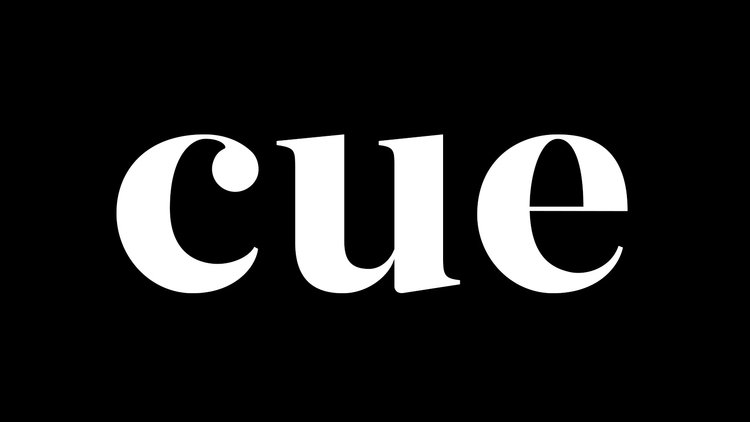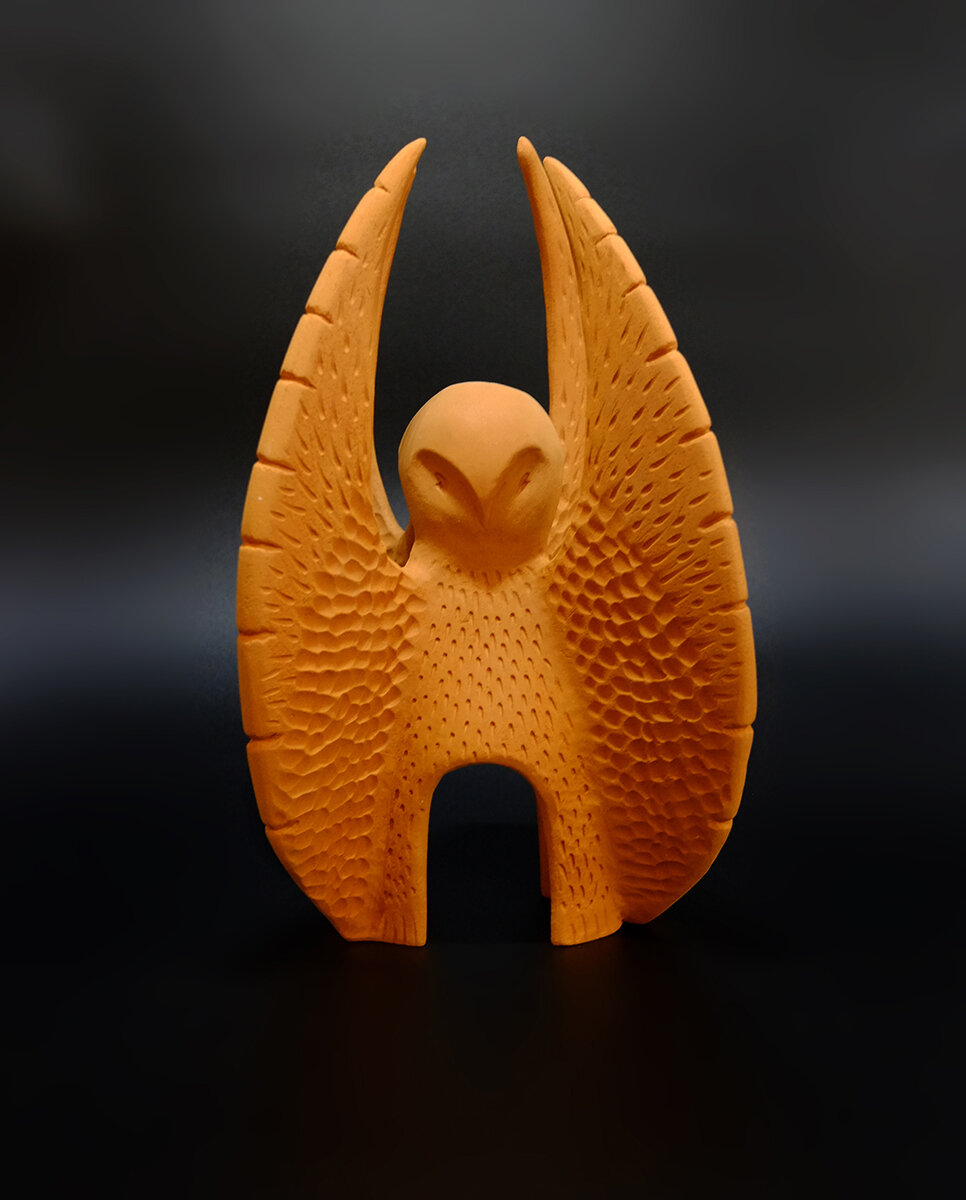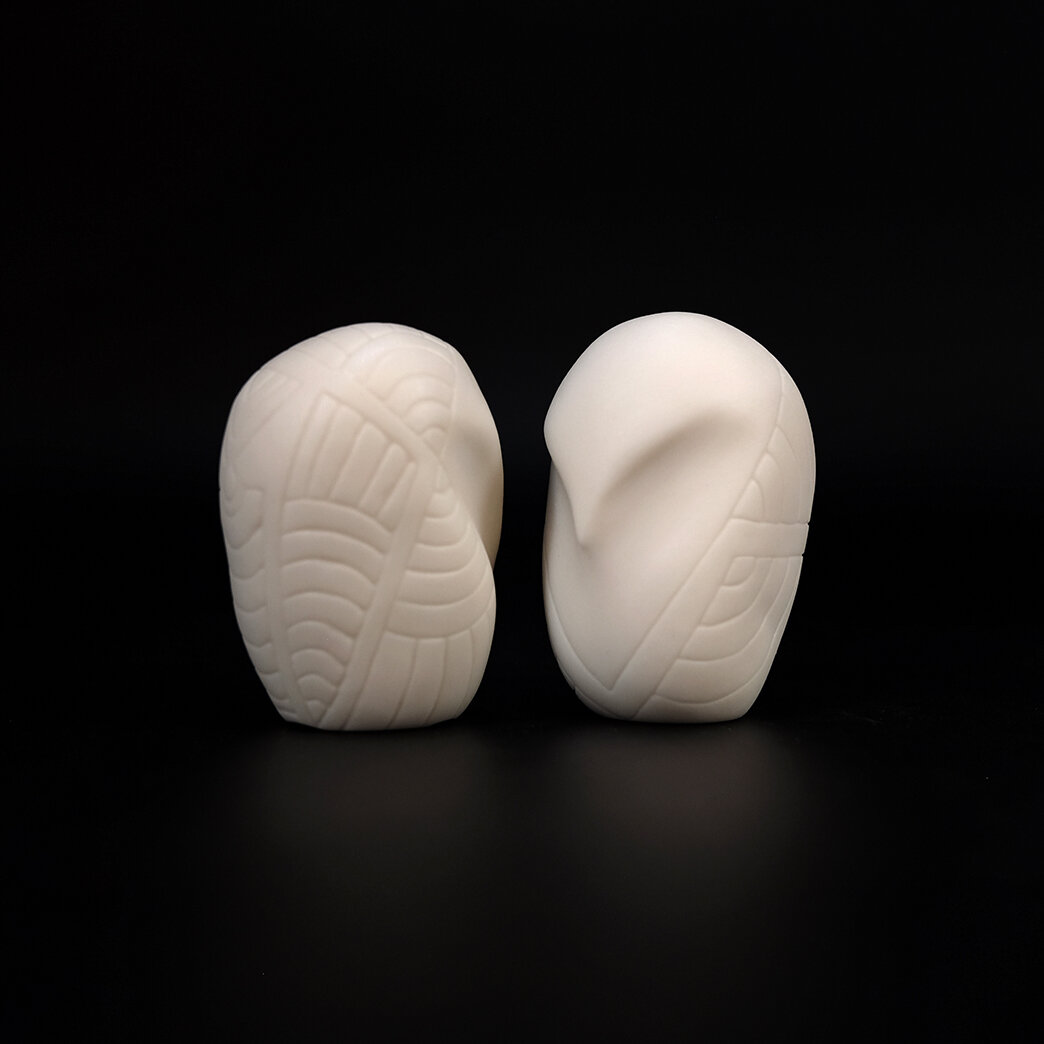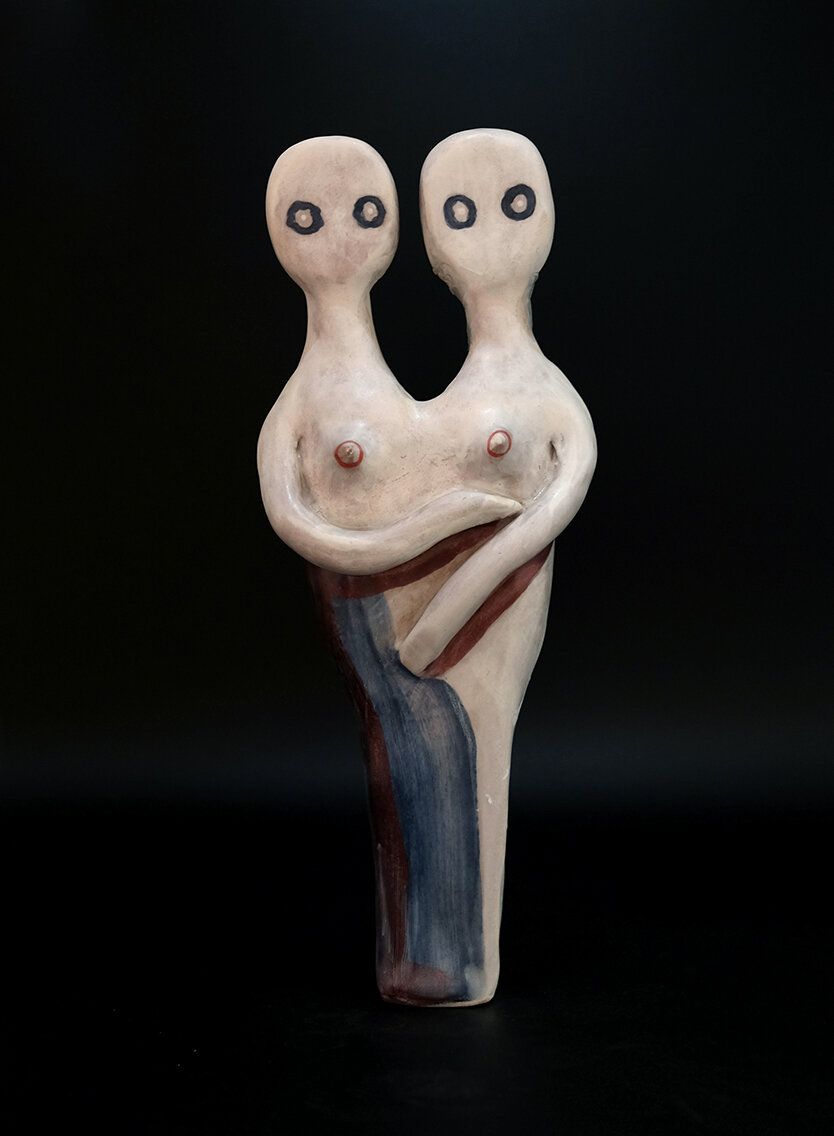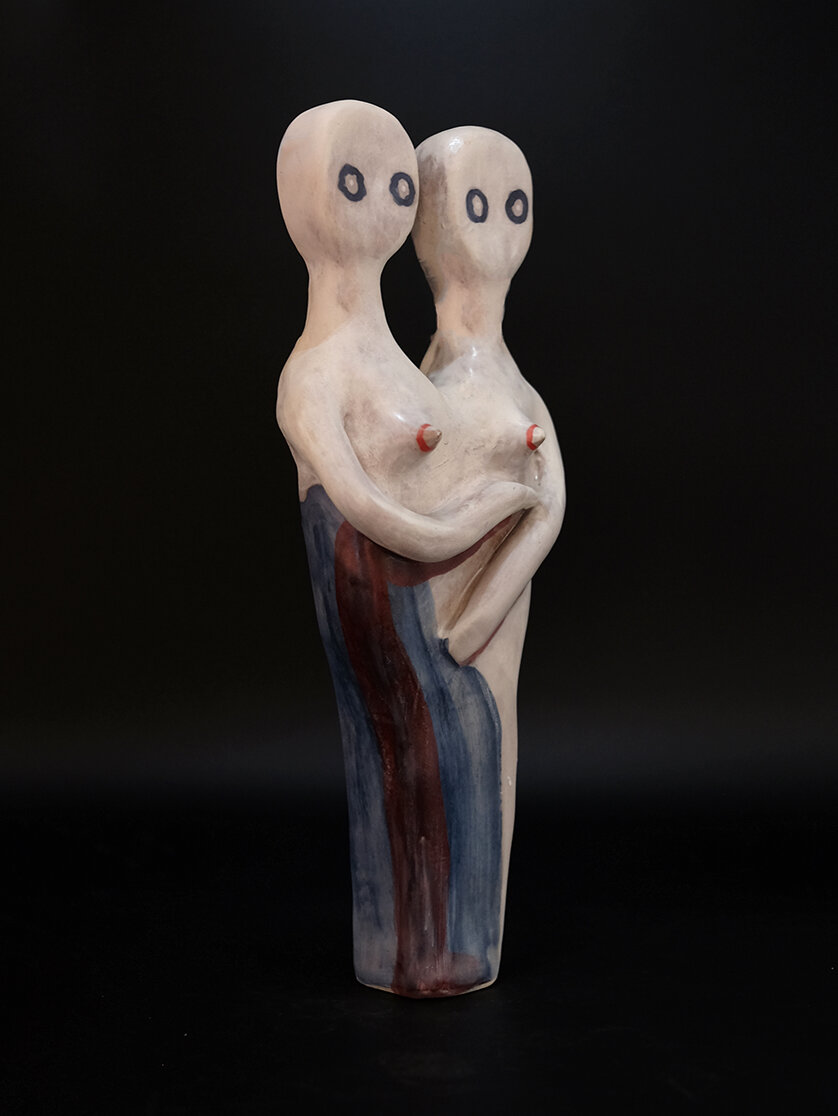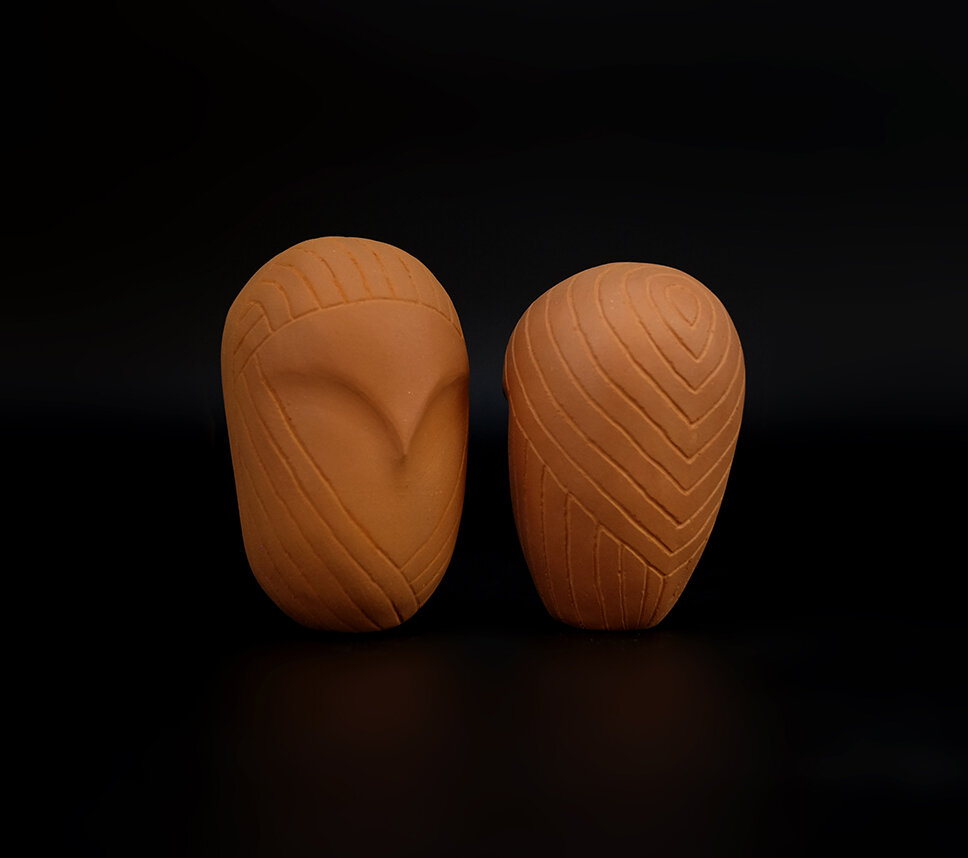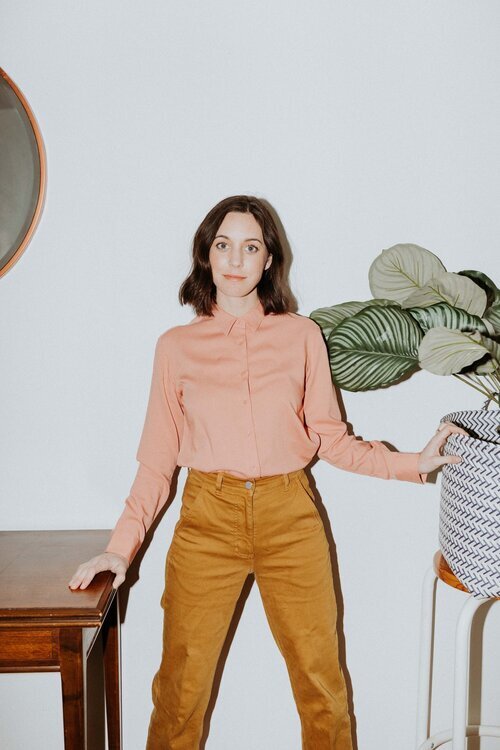Sarah-Linda Forrer is an Amsterdam-based designer, focused on luxury tableware and interior accessories. She speaks a little in our interview about her mission, which centers around inspiring people to eat better, and to pay more attention to the dining experience— in terms of nourishment, its sensuality, and the impact of agriculture systems and cultural culinary habits on the environment. We met at Villa Lena— one of my clearest memories of her was on a long walk with our friend Nadine down to the center of Palaia, she stopped me from grabbing a poisonous leaf off a tree that I hoped to use as a bookmark. She and Nadine chuckled, I didn’t know better, I trailed behind, then they found wild fennel on the side of the road, which they began to pick, and it hit me all at once that if I would never survive in the woods as I was. She also speaks five languages, so it’s hard enough to keep up without the botany expertise.
The Netherlands has instituted relatively lax conditions in comparison to other countries in Europe. The country has registered 44,447 cases of Covid-19, and 5748 deaths. What Sarah-Linda describes as an “intelligent lockdown” looks a lot like what cities like New York are striving to advance to— shops are open, you can walk in pairs, and restaurants remain closed until the 1st of June, with a limit of 30 occupants per restaurant (including staff). She told me after our interview that with the arrival of nice weather, the parks are quite full again, and she has the feeling “when people are supposed to stay in, they want to go out even more.”
P: Bonjour, Sarah-Linda. Where are you?
S: I’m in Amsterdam, the Netherlands. Splitting my time between our apartment and my studio.
P: What do you see outside your window?
S: When I’m at home I see the two big old trees in our shared backyard: a chestnut tree and a plane tree. They block the view to most of the neighbours, which I love. It gives me the feeling that I’m not in the middle of the city. They are beautifully green now, and full of birds.
At the studio it’s quite boring. It’s situated in a kind of industrial/office area so when I look outside I see office buildings, parking lots and a bit further, the highway ring road.
P: What are the restrictions like there?
S: There is an “intelligent” lockdown here, meaning all restaurants, gyms, public places and activities are closed. Some non-essential shops are still open and quite some businesses are still running. People can go outside, however we are advised to stay in as much as possible. Fines are distributed to groups of more than 3 people who don’t respect the 1,5m distance.
P: Could you describe your journey to the studio? What are some of the things you see along the way?
S: It’s a 15min bike ride to the studio. The first part is beautiful. I drive along the Amstel canal with its big trees, nice views and old houses. When the weather is good, people are hanging out on the canal side, jogging or rowing on the water. It can be really busy on sunny days. Then, I pass a few huge office buildings and arrive in the district where my studio is. It used to be a scary, old neighbourhood with a prison and a Hells Angels hangout. But now they are demolishing everything and building new apartment buildings and luxury urban villas. So it’s basically a huge construction site with new houses where people are already living, and old parts still being demolished. It’s a new part of town being constructed and it changes everyday. Just after that, between older offices and businesses, is my studio building.
P: What does a typical day of quarantine look like for you?
S: It varies a little. At the beginning of quarantine I didn’t do much except for taking some rest, reading, cooking and gardening on the balcony, because my boyfriend and I were actually supposed to be on holiday. After some time I started worrying about the effect the crisis would have on my business, since I’m dependent on the hospitality industry… so I went back to work at the studio, trying to switch my focus and create objects for consumers at home instead of restaurants. I’m now working on that line which should be online soon. So now my days are more productive, but I don’t have the same schedule as usual. Somehow without as many appointments and with the daily traffic hours gone, I don’t feel the same stress and need to keep strict working hours. I don’t set an alarm (I really don’t like waking up with an alarm), so depending on what time we go to bed, I wake up between 7:30 and 8:30am. We have a long morning routine, usually including a yoga and/or HIIT workout, a delicious breakfast, and a meditation. We are now in the middle of a 10 day reset, meaning a diet with no carbs, no grains, no dairy, no sugar, no caffeine, no alcohol, nothing processed .. so it’s a lot of experimenting, looking for recipes and more time in the kitchen. I feel great though! After the long morning routine, I either work from home or I bike to the studio where I can work on my ceramics. When I feel satisfied, or tired, or too hungry, I go back home and we prepare dinner. We take more time now to eat together at the table and make it nice. After that, usually a movie on the couch or reading, and some intimate time. As all the appointments, dinners, events, etc are cancelled, it feels a lot more quiet and peaceful. No decisions to make whether to go out or not, what to prioritise.. we are just home!
P: Have you found yourself turning to a certain dish, or song, or book over and over again during this time?
S: We experiment a lot more with cooking right now, so I actually enjoy trying different things, however a go-to at this moment is our homemade ratatouille .. just amazing! I’m also finally reading all the books that were waiting for me on the shelf, so I’m not coming back to a certain book, but reading as many new ones as I can.
P: Has the experience of isolating changed your relationship to you artistic practice?
S: In a way, yes. Because of everything that’s happening, and my client base disappearing, I am rethinking what I’m doing, what I want to achieve and what I’m doing it for. Is it even useful? Does it translate into my mission, my "why"? Are people still going to want and need it, now and afterwards? So I’m thinking a lot about that and trying to figure it out. In the mean time, the objects I’m making now are a very different direction from what I was making before. The urgency changed, so the creation changed.
P: Could you describe a little more about your mission? I'm curious to hear how the change in urgency is manifesting in your work too-- does it impact shape? Texture? Function? All of the above? Food has become such a center piece to this time-- have you found yourself making anything for yourself to use at home?
S: My broader mission is to inspire people to eat better, and pay more attention when they are eating. Pre-corona, I did that by creating sensual tableware for high-end restaurants, working with these chefs to create a different dining experience for their guests. But now that all the restaurants are closed and everyone has to eat at home, I want to reach consumers and inspire them to create a moment of pleasure when they are eating. It’s even more important in these times to take care of yourself and your family and to eat well. The things you cook yourself are usually much more simple and down to earth than what you get in a fancy restaurant. More one-pan or bowl dishes, and no seven-course meals. At home, people need usable multipurpose tableware and recognisable shapes. So that’s what I’m working on now, I’m changing the shapes to be more functional for at home, although they are still handmade and somewhat organic, because that’s just who I am. And yes, I am creating things that I need or wanted at home, so I can also test the shapes, see how they work and get new ideas. We now already have a whole new set of bowls, salad bowls and coffee cups in the kitchen ;)
But hopefully my pre-corona work will still be used in all these amazing restaurants very soon!
P: How are you mentally preparing to return to life post-quarantine? Although I look forward to casual socializing and healthy neighbors, I have found myself strangely happy from time to time in this kind of isolation-- I wonder if you have experienced this as well.
S: Yes me too, I have found myself strangely happy and calm at some moments during this isolation. Maybe it’s all the FOMO that’s gone because nothing is happening anyway. It gives you the peace of mind to stay home and enjoy it. I think after quarantine I’ll try to prioritise more, to only go and do the things I really want to do, not the things I feel like I have to do because everyone does it. And I hope I can keep this stress-free feeling by being a little kinder to myself and not obsessing over irrelevant details. Because now I really realise that stress is self-induced by thoughts and how you handle them.. so it’s up to us.
